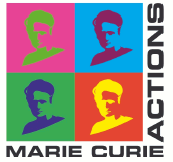Expected final results
The expected research results will have scientific impact in two fields of information sciences: artificial intelligence (in particular machine learning) and distributed computer simulations applied to retrieve meaningful information from the genetic data. This is an important challenge for information sciences, which motivates the goal of the ArSInformatiCa project. However, the progress in machine learning will not be limited to genetic applications. Rather, the methods developed, will be verified by application to human/cancer genetics with a potential to benefit wider and general context of data mining. The example is the development of applicant’s rule-based method known as quasi-dominant rough set approach. While this method has been primarily tested in a search for signatures of natural selection at molecular level in genes involved in human familial cancers, it is expected to become a general machine learning approach having impact on the development of rough sets research.
In a wider, socio-economical perspective by promoting a long-term collaboration between Rice University and European research institutions, the ArSInformatiCa project will also contribute to the excellence of the European Research Area. A research inspired by the project results is envisaged to continued also after its completion and the scale of this research will grow by including also other researchers from Silesian University of Technology and Rice University.



